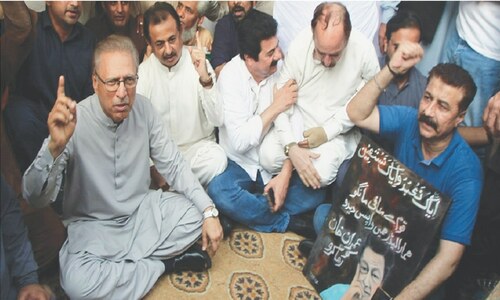ISLAMABAD: The minister of state for health said on Tuesday the government was looking to devise a five-to-ten-year plan to deal with the famine-like situation prevailing in the Thar region of Sindh.
Following a meeting with representatives of the Sindh government, the United Nations Children’s Fund, the US Agency for International Development and the Ministry of National Health Services, Saira Afzal Tarar said the National Disaster Management Authority might be called in to deal with the crisis. But she rejected the idea that the military would be called in to assist the government.
At a time when reliable figures regarding the scale and extent of the disaster in Thar are not easy to come by, reporters at the press conference consistently probed the minister for the exact death toll from drought and malnutrition in the area. However, she could not provide a satisfactory answer, eventually saying: “I don’t have the data.”
Know more: PPP, MQM busy politicking over Thar
According to unofficial estimates, at least 90 people have died in Thar region over recent months.
Ms Tarar said all possible assistance would be provided to the Sindh government to improve the situation in Thar. She said that a meeting with the Sindh health minister to devise a strategy for assistance was on the cards and that on a special directive of the prime minister, a report would be compiled on the situation in Thar.
The minister said the government’s primary focus was on women, adding that the ministry was working on nutrition-related issues.
She told reporters that after the 18th Amendment, it was the responsibility of the provincial government to deal with such issues, but the federal government was taking steps to assist the province.
“There are other problems, including unemployment, deficiency of health facilities and that most people have no access to hospitals. There is a dire need to provide better facilities in hospitals, particularly vehicles. A long-term plan will be devised to resolve these issues,” she said.
Published in Dawn, November 19th, 2014












































